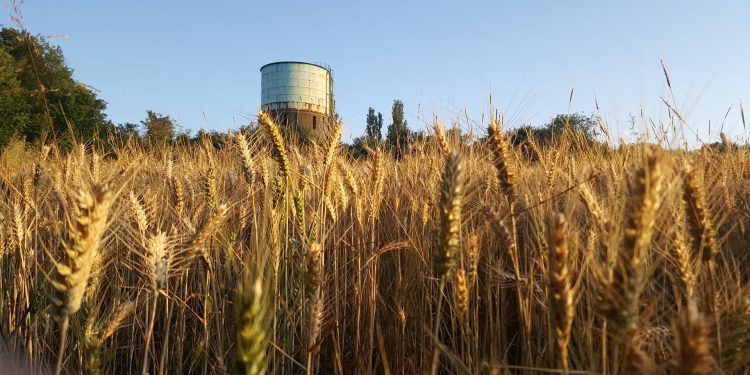The biggest medium to long term risk to local food production is from climate change and other environmental pressures, according to the UK’s Department for Environment, Food & Rural Affairs (Defra).
The UK’s reliance on trade for food security, by value, is already high. £48 billion worth of food, feed, and drink was imported, while £21.4 billion was exported in 2020.
At the same time, between six and seven per cent of the harvest is lost or wasted at the primary production stage.
The findings are discussed in Defra’s triennial report on food security, issued last month.
Highlighting the importance of sustainable farming, the report says soil degradation, water quality and biodiversity loss pose a risk to food security.
Wheat yields fell by 40 per cent in 2020 due to heavy rainfall and droughts at bad times in the growing season.
“Climate change caused £173.5 million in losses for wheat, potatoes and oilseed in the UK – 97 per cent of losses were in England”
Although they bounced back in 2021, “it indicates the effect that increasingly unreliable weather patterns have on future production.”
Total economic losses for wheat, potatoes and oilseed rape in the UK “caused by ozone [depletion leading to climate change]” were calculated to be £173.5 million in 2018, with more than 97 per cent of those losses occurring in England.
Based on modelling by the Met Office, significant future risks to UK food production include heat stress to livestock, drought, pests and pathogens, and increased soil erosion risks.
The UK’s agriculture sector relies on natural capital, the degradation of which “poses an underlying threat to the UK’s ability to produce food.”
European countries are “essential to the UK’s food security”
Ecosystems services from natural capital, which provide key inputs to food production, often go uncounted.
In turn, the impact of agriculture on the environment is also often unaccounted for. However, soil degradation, erosion, and compaction are estimated to cost about £1.2 billion each year – “in addition to which they reduce the UK’s capacity to produce food”. But, specific data is missing to track this.
The report says, “Sustainable production methods help to ensure the UK’s long term food security by protecting the natural capital embedded in soil, water, and biodiverse ecosystems.”
The loss of Europe as key trading partner has created further risks to food security, as EU countries continue to be the main source for food, feed and drink imports – making them “therefore essential to the UK’s food security”.
39 per cent of these imports by value were despatched from the Netherlands, Republic of Ireland, Germany, and France in 2020.
“Six to seven percent of the total harvest is lost or wasted on farms”
In 2020, the UK imported 46 per cent of the food it consumed and the EU’s share of UK imports has remained very stable at around 70 per cent in recent times.
The report says the impact of the UK’s new trading relationship is not yet visible in data. Domestic production may also change with the removal of subsidies managed through the European Common Agricultural Policy (CAP).
Regarding the threat to food security posed by waste, the report says that while 43 million tonnes of food is bought by consumers in the UK, 7.7 million tonnes is then wasted by households and in hospitality – around 3.3 per cent. 1.8 million tonnes is wasted in manufacturing and retail. This all comes on top of the huge proportions lost in agriculture – six to seven percent of total harvest.
Tim Lang, emeritus professor of food policy at City University London has said, “The UK Food Security Report is important. Here is the world’s sixth richest economy auditing its own food security.
“Food poverty rose. Food banks were unable to cope. To ‘leave food to markets’ is regrettable”
“However, it is threaded through with a regrettable complacency which most of the advisors and the food policy community do not share.
“On page 86 it says ‘UK food production is driven by market forces rather than aiming to maximise calorie production from available land.’
“Actually food poverty rose. Food banks were unable to cope. With inflation again rising, and food always a flexible item in household budgets, to continue to ‘leave food to markets’ is regrettable.
“It flies in the face of history. Endless studies have confirmed what was learned, too late, from the 1840s Irish Great Hunger that there is enough food but only for those who can buy it.”
Prof Tim Lang’s full response will be published by the Food Research Collaboration.























